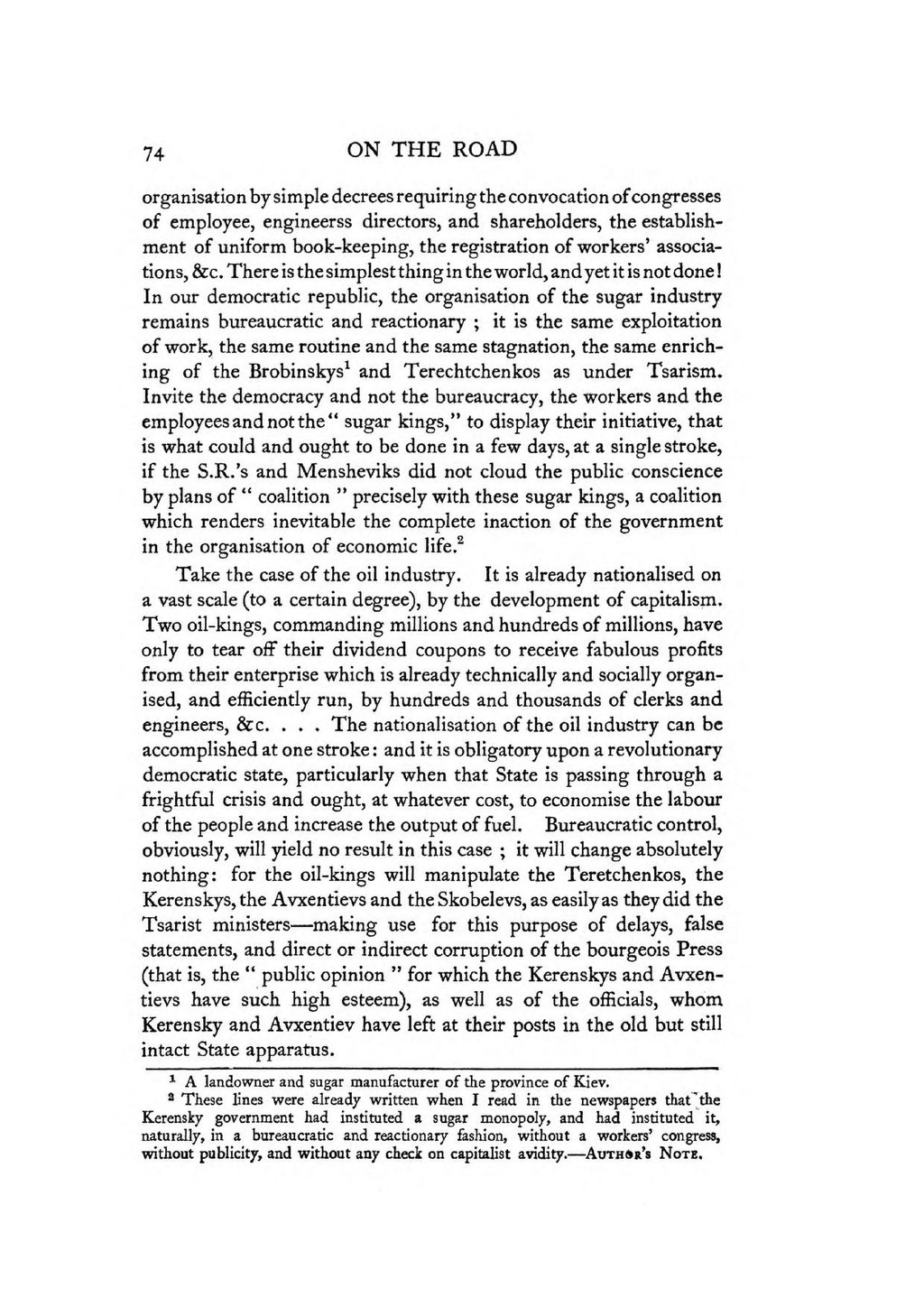organisation by simple decrees requiring the convocation of congresses of employee, engineerss directors, and shareholders, the establishment of uniform book-keeping, the registration of workers' associations, &c. There is the simplest thing in the world, and yet it is not done! In our democratic republic, the organisation of the sugar industry remains bureaucratic and reactionary; it is the same exploitation of work, the same routine and the same stagnation, the same enriching of the Brobinskys[1] and Terechtchenkos as under Tsarism. Invite the democracy and not the bureaucracy, the workers and the employees and not the "sugar kings," to display their initiative, that is what could and ought to be done in a few days, at a single stroke, if the S.R.'s and Mensheviks did not cloud the public conscience by plans of "coalition" precisely with these sugar kings, a coalition which renders inevitable the complete inaction of the government in the organisation of economic life.[2]
Take the case of the oil industry. It is already nationalised on a vast scale (to a certain degree), by the development of capitalism. Two oil-kings, commanding millions and hundreds of millions, have only to tear off their dividend coupons to receive fabulous profits from their enterprise which is already technically and socially organised, and efficiently run, by hundreds and thousands of clerks and engineers, &c. … The nationalisation of the oil industry can be accomplished at one stroke: and it is obligatory upon a revolutionary democratic state, particularly when that State is passing through a frightful crisis and ought, at whatever cost, to economise the labour of the people and increase the output of fuel. Bureaucratic control, obviously, will yield no result in this case; it will change absolutely nothing: for the oil-kings will manipulate the Teretchenkos, the Kerenskys, the Avxentievs and the Skobelevs, as easily as they did the Tsarist ministers—making use for this purpose of delays, false statements, and direct or indirect corruption of the bourgeois Press (that is, the "public opinion" for which the Kerenskys and Avxentievs have such high esteem), as well as of the officials, whom Kerensky and Avxentiev have left at their posts in the old but still intact State apparatus.
- ↑ A landowner and sugar manufacturer of the province of Kiev.
- ↑ These lines were already written when I read in the newspapers that the Kerensky government had instituted a sugar monopoly, and had instituted it, naturally, in a bureaucratic and reactionary fashion, without a workers' congress, without publicity, and without any check on capitalist avidity.—Author's Note.
